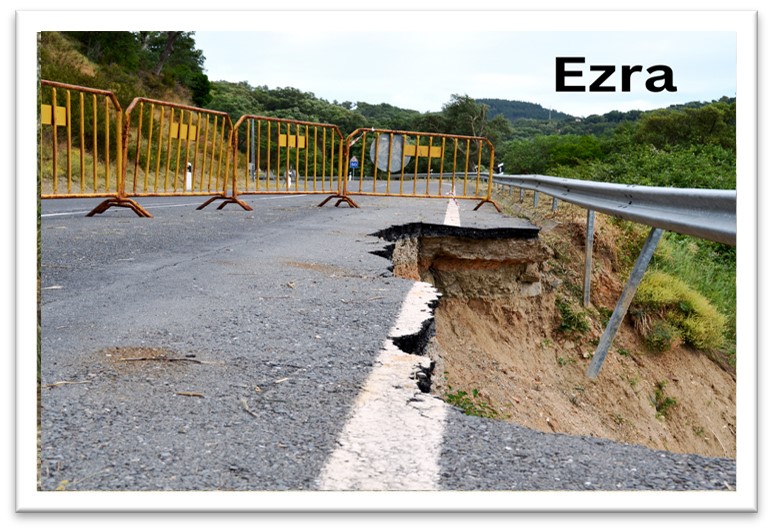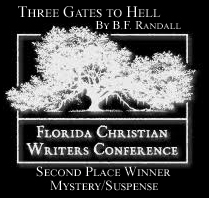 Cruising Route 66
Cruising Route 66
“Repairing the Erosion”
This is what Cyrus king of Persia says: “‘The Lord, the God of heaven, has given me all the kingdoms of the earth and he has appointed me to build a temple for him at Jerusalem in Judah. Any of his people among you may go up to Jerusalem in Judah and build the temple of the Lord, the God of Israel, the God who is in Jerusalem, and may their God be with them. And in any locality where survivors may now be living, the people are to provide them with silver and gold, with goods and livestock, and with freewill offerings for the temple of God in Jerusalem.” Ezra 1:1-4
As we have seen in the previous books we have read God is fulfilling His promises, protecting His people, providing for their needs, and meeting them where they are. Yet with incredible consistency, God’s people keep getting distracted, turning to empty promises, other gods and hopes that have no substance.
It’s as if God’s people seem to forget what He had promised. They disregard what He has done in their lives. They compromised their moral distinctives and began conforming to the dysfunctional, sinful world around them.
The Book of Ezra reminds us of how easy it is to lose heart, to become discouraged, and to allow the peace, joy, and confidence that distinguishes Christianity to fade. It is also a book that shows how simple and easy it is to regain what was lost and rebuild a life of faith.
Within the Scriptures and within the church today, God’s people are showing the symptoms of spiritual Alzheimer’s. There are some simple truths that are essential in repairing of the erosion, and Ezra illustrates them as Judah’s refugees begin to restore their hearts toward God.
The first truth is fundamental, the very foundation in which hope is built. Any lasting change or permanent recovery must begin at the cross.
On the first day of the seventh month they began to offer burnt offerings to the LORD, though the foundation of the LORD’s temple had not yet been laid. – Ezra 3:6
That ancient brazen altar is where the sin offering was made on behalf of the people of Israel. It was where the people’s redemption was purchased in blood, the foreshadowing of Calvary’s Cross, where our redemption from sin was purchased. The text suggests a paradox of human reason when we celebrate a death that brings eternal life. It must start by focusing on the cost of freedom because nothing is truly appreciated until we see what it’s worth. Gratitude is birthed by recognition. Note that the people didn’t wait for a church to be built to experience the revival of their faith. The building of a house of worship followed the worship, not preceded it. In other words, don’t wait for Sunday to experience revival!
With praise and thanksgiving they sang to the LORD: “He is good; His love to Israel endures forever.” And all the people gave a great shout of praise to the LORD, because the foundation of the house of the LORD was laid. – Ezra 3:11
The people were getting excited as they watched what God was doing in their midst. As you read the previous chapters, you will see that this was the result of God’s hand and their sacrificial giving at work.
The second simple truth is an unfortunate one, but one that exists. Recovery will always be resisted.
Despite their fear of the peoples around them, they built the altar on its foundation and sacrificed burnt offerings on it to the LORD, both the morning and evening sacrifices. Ezra 3:3
Chapters 4 and 5 give greater details of the struggles that arose when God’s people sought to reinstate the worship of the Lord in Jerusalem. This should be no surprise. Jesus said that persecution would come when righteousness is sought. The resistance comes in both human and spiritual form and tends to take on similar characteristics.
Then the peoples around them set out to discourage the people of Judah and make them afraid to go on building. – Ezra 4:4
Discouragement is a favorite tool used by those who want to infect a new believer’s faith and dishearten a healthy desire to walk uprightly before God. The moment you start something new, someone will tell you it won’t work. That you are doomed to failure.
The king should know that the Jews who came up to us from you have gone to Jerusalem and are rebuilding that rebellious and wicked city. They are restoring the walls and repairing the foundations. Furthermore, the king should know that if this city is built and its walls are restored, no more taxes, tribute or duty will be paid, and the royal revenues will suffer. – Ezra 4:12-13
This isn’t counsel. It wasn’t intended to be. Its purpose is to instill fear and halt progress. If discouragement doesn’t work, accusations are the next step. Falsehood and out and out lies are the ammunition a naysayer will use to create division. From here an army of opposition can be built by creating anxiety in their hearts. This isn’t a warning. It’s not a cautionary statement, but rather an attempt to consolidate forces by instilling alarm and fear.
But many of the older priests and Levites and family heads, who had seen the former temple, wept aloud when they saw the foundation of this temple being laid, while many others shouted for joy. – Ezra 3:12
The voices are quick to say, “This is not what we once had, the new will never be as good as the old.” Criticism isn’t intended to guide by comparison or lead by the wisdom of experience. The criticism Eza is addressing is morphing into condemnation. It isn’t constructive but destructive.
Recovery from spiritual Alzheimer’s takes place when truth is proclaimed openly, and prophecy brings about revival. Here too, resistance will rear its persistent head. What makes this opposition unique is that it doesn’t come from those on the outside, but from within.
Ezra had devoted himself to the study and observance of the Law of the LORD, and to teaching its decrees and laws in Israel. – Ezra 7:10
Revival of faith and the resurgence of worship is brought through anointed preaching. Do not mistake the term “preaching” as referring only to some pastor sermonizing from his or her Sunday pulpit. The term unfortunately has taken on a negative connotation, equal to nagging, and critical faultfinding. Jesus told us in Matthew 10:7 to “preach this message: ‘The kingdom of heaven is near,’”
Ezra, Jeremiah, Haggai, and Zechariah played pivotal roles in repairing the erosion of Israel’s faith. The Spirit that spoke in their day can speak through you today. Don’t let your guard down. Don’t become discouraged and tune into the voices of resistance.
The expectations you have for others will not drive them to Christ, but the joy you have within you will. Find the refreshment for your soul in God’s Presents. Then share Him with all those whose lines may be experiencing some level of erosion. Help them rebuild.
Until next time,
Ben








